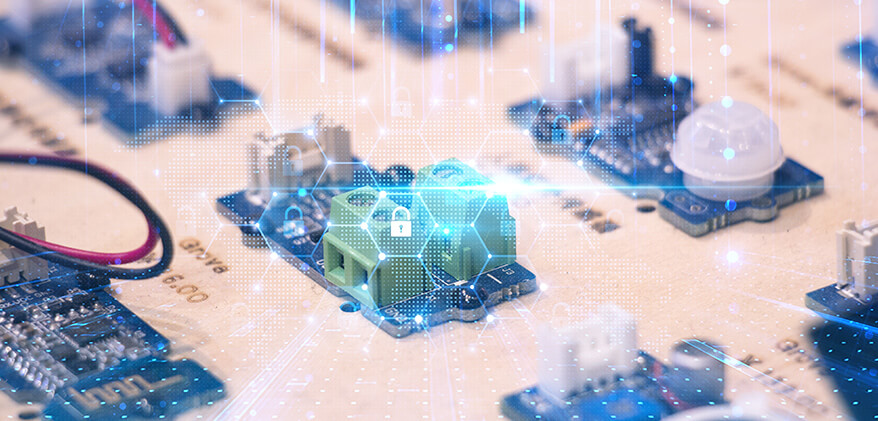Lithium Ion Battery Advantages and Disadvantages Analysis
Jun 10, 2019 Pageview:1317
The use of lithium-ion, or more commonly known as the li-ion cell, has increased enormously in recent years. They offer specific benefits and improvements to other forms of battery technology.
However, like all other technologies, lithium-ion batteries have their advantages and disadvantages.
To get the most out of Li-Ion battery technology, it is not only important to understand the benefits, but also the limitations or disadvantages of the technology. In this way, they can be used in ways that give them the most power.

Lithium Ion Battery Advantages
There are a lot of benefits of using these batteries that separate them from other kinds of batteries.
High energy density
One of the most significant advantages of the lithium ion battery is that they have a very high energy density. There is always a need for the batteries that will last longer when using a mobile phone. We all wish to have a longer battery that will last many hours without needing another charge. There are many other applications other than the cell phones that require high-power energy. The lithium ion batteries offer a very high-power density. This technology is also very helpful when it comes to the electric vehicles as they too need higher energy densities.
Self-discharging
One problem with numerous rechargeable batteries is that they self-discharge rate. The lithium ion cells are that their degree of the self-discharge is very lower than that of the other rechargeable batteries, for example, NiMH and Ni-Cad forms. It is characteristically near to 5 percent in the initial four hours after getting a full charge; however, then falls to nearly 1 or 2 percent every month.
Low upkeep
The lithium ion batteries don’t need a lot of maintenance, and that is why they are preferred by a lot of people. What is better than something that will not require a lot of maintenance. You don’t need to spend a lot of your money just in the maintenance of these batteries.
No need for priming
A few rechargeable cells require to be primed the time they take their initial charge. There is no need for this when it comes to the lithium ion cells and batteries.
Variety of categories offered
Different types of lithium-ion cells are available in the markets all around the world. This benefit of lithium-ion batteries might mean that this suitable technology can be used for the specific applications needed. Some forms of lithium ion batteries provide a high current density and are ideal for mobile electronics consumer. Others can offer higher level of current which is ideal for electric vehicles and power tools.

Lithium Ion Battery Disadvantages
Everything has its drawbacks too. So, we have listed below some drawbacks of the lithium ion batteries.
Protection needed
There are a lot of batteries available in the market, and most of these batteries need a lot of protection. By the term protection, we mean that they need to be taken care of. They need to be taken care of being overcharged or being discharged too far. In adding to this, they require to have the current sustained in safe parameters. Accordingly, 1 lithium ion battery drawback is that they need an electrical safety system combined to guarantee they are reserved in their safe functioning bounds. Luckily, with the recently integrated circuit expertise, this can be comparatively simply combined into the battery, or in gear, if the battery is not transposable. Combination of the battery managing electrical system allows li-ion batteries to be used deprived of any distinct information. They can be left on the charge, and afterwards, the battery is completely charged, the charger will automatically cut the source to it.
Ageing
One of the main lithium ion battery drawbacks for customer electronics is that the lithium ion batteries may affect their working as they get older. Not just this time or the calendar reliant on, however it is too reliant on the sum of charge discharge rounds that the cell has experienced. Frequently cells will just be capable of enduring 500 to 1000 charge and discharging cycles before the capacity of these batteries to charge falls. With the progress of the li-ion tech, this number is growing, however eventually cells might need changing, and this can be a problem if they are fixed in gear.
Transference
This li-ion battery drawback has come to the front in current years. Numerous commercial airlines bound the sum of lithium ion batteries that they take, and this expresses their transport is restricted to the ships alone. For air travelers, lithium ion batteries require to be in the carry-on baggage, though with the safety position, this might change from time to time. However, the sum of the cells might be restricted. Any lithium ion batteries carried distinctly need to be shielded against the short circuits by shielding covers, etc.
Price
A major lithium ion battery drawback is their price. Usually, they are nearly 40 percent more expensive to make than the Nickel cadmium cells. This is a chief issue when seeing their use in the mass-produced user things where any extra prices are the main problem.
Immature tech
Although the lithium-ion batteries have been in use for numerous years, it may still be considered by a few people to be immature, because it is a field that has been fully developed. This can be a disadvantage because the technology is not stable. However, since new lithium-ion technologies are constantly evolving, it can likewise be a benefit because improved solutions are available.

Lithium Ion Battery Cost Performance Analysis
There are a lot of people who have been using lithium ion batteries, and they realize how beneficial they are. But for the people who have never used these batteries, it is very hard to make to their minds. According to different researches and analysis, it has been proved that these lithium ion batteries are a really good choice. They perform much better than they cost. So, if you are looking for the batteries that will last, then they are a great choice.
- Prev Article: Roaring top LiPo batteries
- Next Article: Why are lithium ion batteries better?
Leave Message
Hottest Categories
-
Hottest Industry News
-
Latest Industry News













